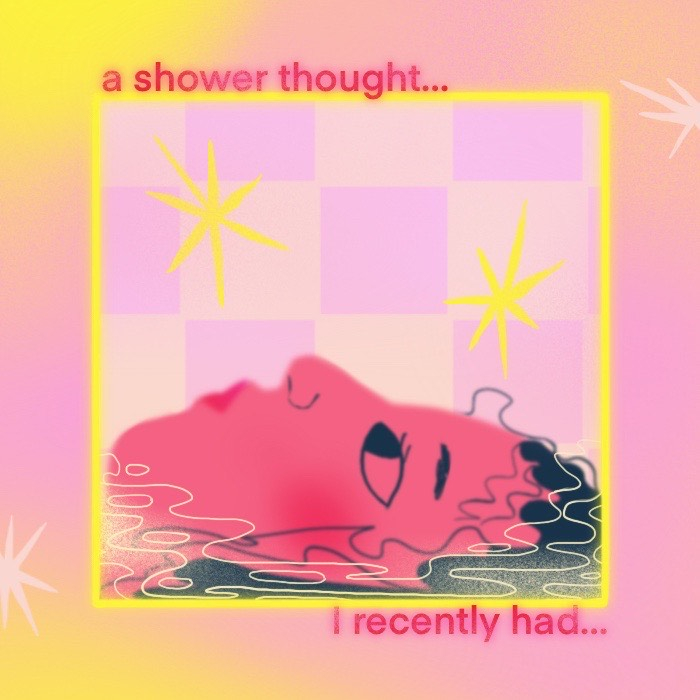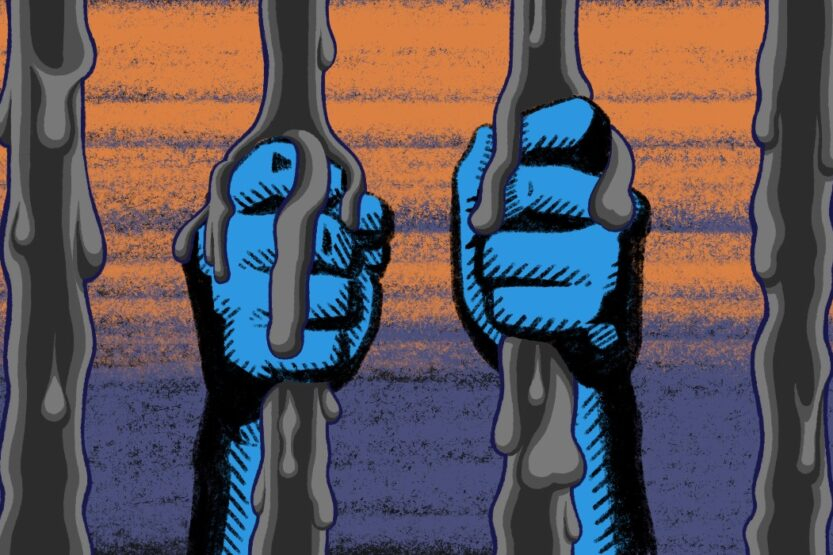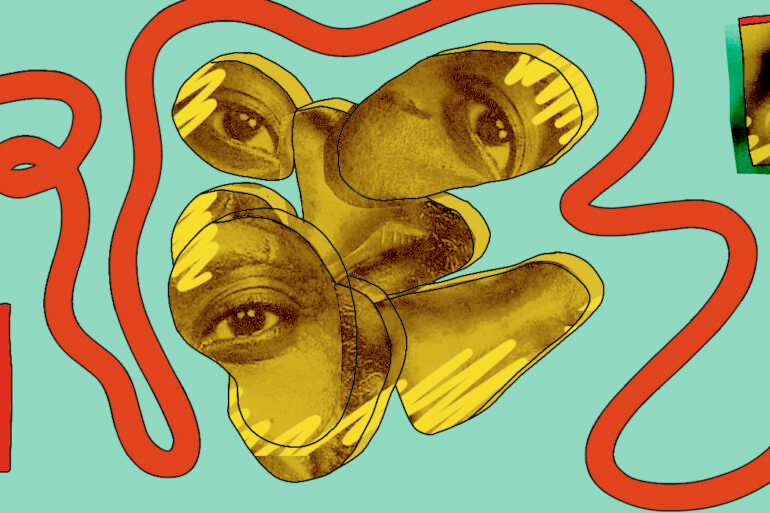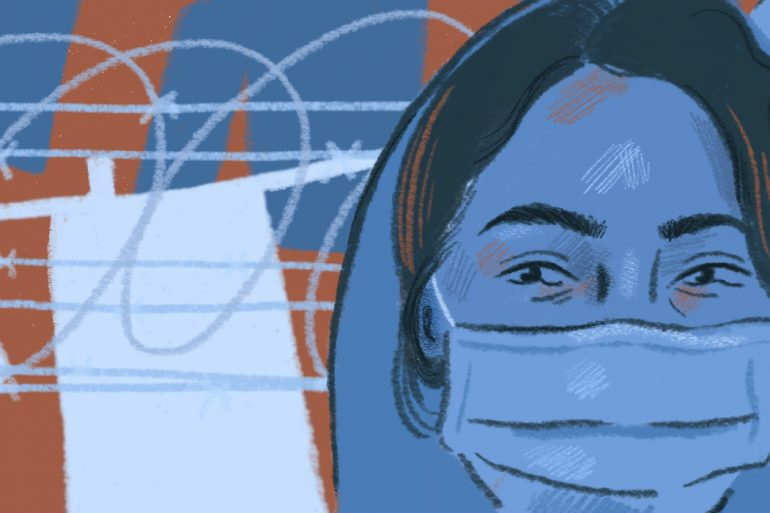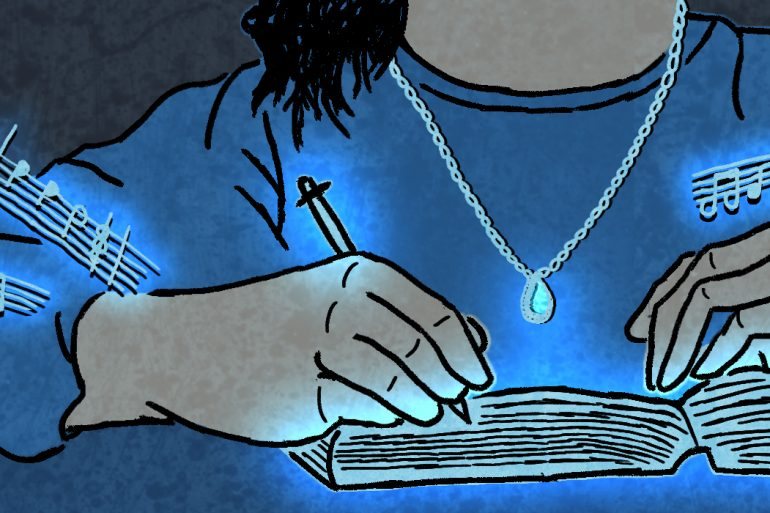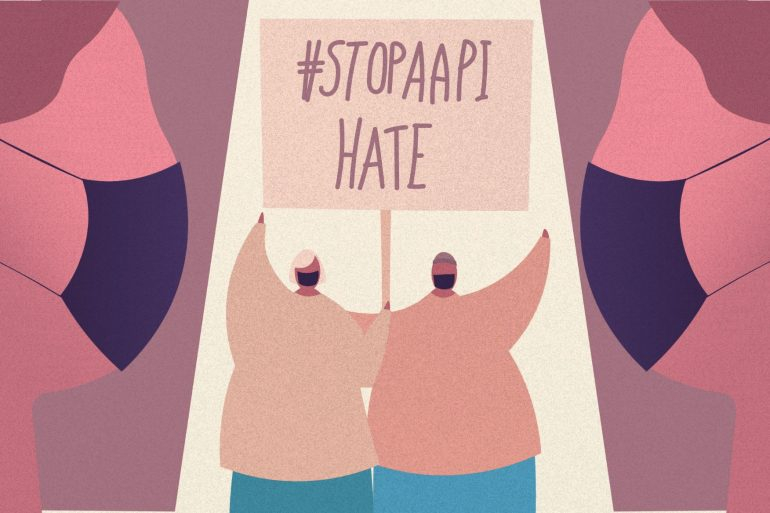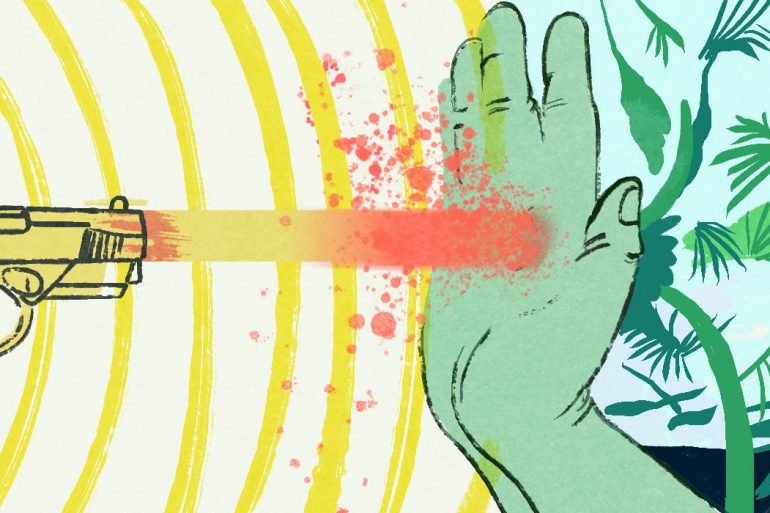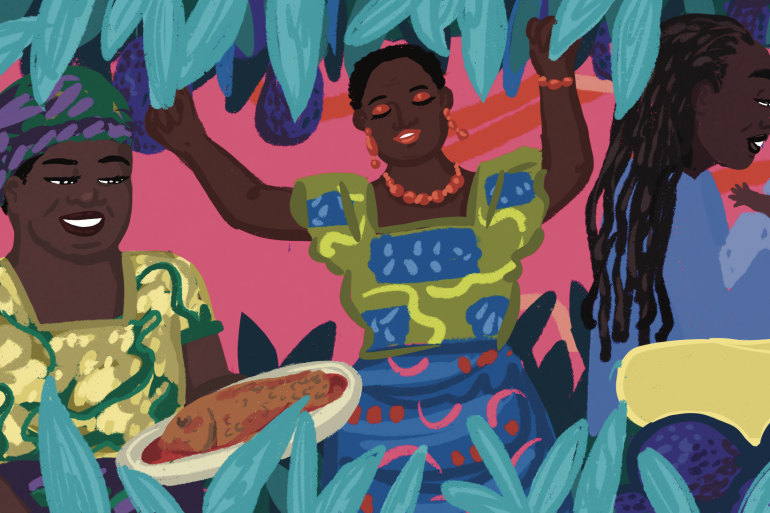In the age of digital connection, dating apps have become the virtual arenas where our romantic lives unfold. We don’t meet at bars or supermarkets anymore; it’s all about the apps.
I recently went to the podcast launch of Sex Talks, a live event series and media platform which exists to engender more honest, open and vulnerable conversations around the topics society shies away from: sex, relationships, and the future of intimacy. One of the guests remarked: “We get taught that love is a battlefield,” (alright Pat Benatar) and I can’t help but notice how that battlefield has had a remarkable shift towards a culture of radical vulnerability.
Gone are the days of playing it coy and waiting for days to reply to a text. We now embrace a culture of radical vulnerability, where we wear our hearts on our sleeves and share our deepest desires and insecurities without hesitation. Whatever is playing on our minds and hearts gets said – and we are applauded for it. And a lot of us are saying it all on dating apps; by 2027 the projected number of users in the online dating market is expected to amount to 11.71m users by 2027.
But there’s a more sinister side to baring it all.
The personal is political and also, it’s everywhere now
A flippant quip said on Hinge on Tuesday evening could make you the next main character on Twitter by Wednesday morning and haunt you for a very long time. I’m not going to pretend that I’m not guilty of sharing screenshots on social media – it’s cathartic to share the fucked up things (mostly) men send to you in an attempt to make them feel a semblance of shame, (I had to google what DSLs was when I was far too young, which is an experience shared by far too many Black women).
But sometimes, I can’t really see why a seemingly harmless comment blows up online and it almost makes me worried about whether anything I’ve said could land me in hot water. I’m reminded of the most recent example of this, where a woman was asked on an ice cream date and divided the internet. Her rejection, while polite, confused (and even angered) members of the public who were now a part of this everyday exchange. Some thought she had far too high standards, some agreed with her reasoning and of course some immediately made incredibly misogynistic and violent generalisations about women. So, a Wednesday on the internet.
I want to dig deep into the profound impact of this new paradigm, exploring whether this era of openness and transparency truly facilitates meaningful connections or if it unveils a host of complexities that hinder our search for love.
In a quest to find answers, I spoke to the illustrious Sex Talks podcast host, Emma-Louise Boynton, and she spoke openly about the difficulty of the audience expecting her to have a “shocking story” to share.
Do it for the plot or do it for the algorithm?
I wondered, when you have a platform so dedicated to baring all, is there a pressure to create a story just to have one to share? “You do end up feeling the pressure to be someone you’re not,” she says. “As a rule, I don’t like to talk about people specifically. I don’t want the habit of being a tell all person – it’s not fair on the people involved. They haven’t opted into that.”
Privacy online is such a huge concern today as so much of the public and private space has been eroded in favour of the digital world. Sharing our experiences online can normalise experiences that are often shamed, but it does feel that in recent years that the motivation behind this has become more selfish.
Felicity Martin talks about this in BeReal and the non-stop urge to contentify our lives, and writes, “what exactly drives this urge to contentify our lives is hard to identify, but it mainly points to capitalism and the monetisation of the internet. People go viral and opportunities are handed out as a result. Our bodies and selves are increasingly seen as things to market and, once we’ve built up a platform, there’s power that comes with that.”
This “contentification of the everyday” can be seen everywhere and I believe that this lack of authenticity, or the fear of admitting to not knowing who is being real and who is trying to make a quick buck, has resulted in a “be a bully first, ask questions later” online policy.
People are immediately taking hostile stances and then expecting strangers on the internet to confirm what is often a very narrow point of view. I’ve always assumed that the rules of social media are almost invisible and embedded in an ephemeral social code we all sort of agree too but as platforms such as Instagram and TikTok have shown, content is king and encourages people to violate the privacy of others for profit – or a cheap laugh.
Aleena Khan speaks about this in The Psychology of Online Political Hostility: A Comprehensive, Cross-National Test of the Mismatch Hypothesis and states that “features of social media platforms allow for a personalised blend of political and non-political content, anonymity, fewer clear social cues, and rapid communication, which, they argue, can induce psychological changes that make users less empathetic and more aggressive than usual.”
So, how are you supposed to find love in a landscape like this? Do we need to resign ourselves to having to navigate through a maze of impossibly mean folks and deceitful chameleons and in the hope of finding someone? It’s no wonder women approach online dating with a healthy dose of trepidation. And we’re worse off because if we speak about how we have been harmed, we are still blamed for not seeing the red flags!
It would be easier to just assume everyone you date is out to harm you, constantly seeing malevolent and villainous actors at every corner, but what kind of life is that?
Emma-Louise agreed, as we spoke about how women online sometimes use the behaviour of one man, to essentialise the behaviour of the entire male gender leaving them with a very skewed and miserable world view. “We have pathologised pretty shitty dating trends. Sometimes he’s just not into you!” she laughs.
It’s not all men, sometimes it’s a gender-equal misery party
If you’ve been on the internet for longer than a day, trial by social media will not be a new phenomena to you – and high profile cases have led to a sea of armchair psychologists hot takes becoming objecting truth despite having absolutely no credible evidence to go on.
In fact, the deeply disturbing wave of harassment Amber Heard faced, mostly from other women, during and after the Johnny Depp defamation suit still leaves me unsettled to this day. It led to more than 130 people signing an open letter in support of the actor, including the writer Gloria Steinem. The letter remarked that “much of this harassment was fueled by disinformation, misogyny, biphobia and a monetized social media environment where a woman’s allegations of domestic violence and sexual assault were mocked for entertainment.”
But even if you’re not famous, you’re not immune to this. We find ourselves using an unfit-for-purpose forum to delve into the minutiae of relationships we have no knowledge about, only to circle back to where we started, creating new ways to confront plain old racism and misogyny.
Subscribe to shado's weekly newsletter
Exclusive event news, job and creative opportunities, first access to tickets and – just in case you missed them – our picks of the week, from inside shado and out.

Knock-knock: it’s right there, glaring at us. It’s always marginalised people who lose out in these situations, as seen with the campaign of pure vitriol against Amber Heard. I can only hope that her team kept her away from social media, but survivors everywhere had to see what the public thought about them and it was heartbreaking to watch.
Yes, sometimes people are terrible on dating apps, it’s true of all genders. And yes, that screenshot shows what a dick that person is and your clapback was so totally funny – but let’s take a step back and ponder this: do we really need to lay everything bare on the internet?
Maybe, just maybe, there’s a better way to share personal stuff that won’t get twisted or misconstrued, like through the good old group chat. The internet, for all intents and purposes, is still the wild west – and we’ve been trying to wrangle it since the beginning. But the truth is, despite our best efforts, there’s no stopping people from using the information we put out there in all sorts of unpredictable ways.
My generation grew up on this digital scape and I’ve had to learn that in order to protect yourself, there are parts of you that you must fiercely protect, the way a dragon protects its horde.
I’m not going to ignore the fact that sharing such intimate details of our lives is a connecting experience, especially for women. On episode one of the Sex Talks podcast, Emma-Louise shares a revealing story of attempting to buy the affection of teenage boys when she was 15 years of age, after receiving her first pay-cheque. It was such an honest story that told us so much about her. There was a warming shared sense of girlhood, yearning and making terrible decisions in the name of a crush which I feel like we can all relate too – it is that radical vulnerability that fosters these feelings.
Safeguarding young hearts (and minds)
However, modern dating culture has facilitated a rabid gamified algorithm to dating. The obsession with commodifying all private aspects of our personal lives would put me off entering the dating market, and research shows gen-Z are having fewer relationships. As a former youth worker, I couldn’t resist going straight to the source – 18-year-olds! With all the wisdom of ancient sages, I gathered round these zoomers and popped the ultimate question: “So, dating apps, what’s the verdict?”
“I would never use a dating app, it’s kinda…unnatural.”
“Dating apps ruin it, you’re settling for the person who just happens to have the same goal as you at that time”
“You either find a lover or a friend, never both.”
“Imagine telling your future kids you met on Tinder….”
“Ew. I’d rather meet people in the club, parties, parks – literally anywhere else.”
When I tell them I met my partner on a dating app over two years ago, they grow comically silent. There’s a poetic elegance in their resistance, as if their hearts long for a connection that unfolds with the gentle grace of nature. Their playful criticisms and valid scepticism reveal something deeper and something, perhaps, worrying. Have we broken dating?
I wasn’t kidding; I met my boyfriend on an app in April 2021, the day pubs opened back up post-Covid (the best day that year). When I looked back over our initial conversation for this article, what I found shocked me: absolutely no chat or banter between us whatsoever. You would hardly think that we were the same people who clearly very reluctantly spoke to each other those years ago.
I used to really struggle with keeping relationships despite constantly meeting people off the apps. I would bring my social media followers with me on first dates and we would collectively fall in love over the course of three months, until, predictably, it would end.
I think I believed that friendship plus time multiplied by attraction was love. My partner disagrees with this theory. “You think of us as this formulaic thing,” they said one day, “but sometimes one plus one doesn’t equal two.” I was enraged. How can one plus one not equal two? But I remember how at night when I try to disentangle our clammy fingers (their body reaches the temperature of a thousand suns at exactly 2am), their lifeless fingers will always animate to chase mine, fingertips galloping over to mine and that’s how we will fall asleep, with our pinkies kissing, intertwined.
I realise I have never once felt as safe as I do with them than I do with anyone else. I realise finding love is a little more complicated than a simple formula (or algorithm). Without the risk, without accepting the risk that comes with entangling your life with someone else’s, I would never have found the haven I have found with them.
There is always hope amongst the complexity
My boyfriend came with me to the podcast launch and when the panel discussed their icks, seeing my disgusted reaction at the mention of long toenails and they whispered in my ear, “that’s why I always wear socks with my sandals, baby.” I remember laughing and thinking I wouldn’t want to be anywhere but here, with them. I’m realising that maybe that’s the hack: genuine moments of connection are treasures that dating apps simply cannot replicate. I still find a glimmer of hope for the digital realm of romance.
Maybe, just maybe, the key is to approach dating apps as a fleeting stepping stone – a means to find potential matches but not a destination for love. Instead of lingering in the 2D world, I encourage us to step away, to break free from the allure of pixels and avatars and bring our fuller and vulnerable selves into the real world. Don’t let the 2D version of this person build up in your head because you will only disappoint yourself. Dating apps will always be useful tools or mechanisms for meeting new people. I don’t think they’re going away anytime soon but they will always be that: tools. The output of the tools we use depends largely on how we use them and the only way to really find that spark or essence, is to get up, get out and meet them in the real world.
A few months ago, I read Heartburn, Nora Ephron’s “thinly disguised” novel about infidelity, love and food. In it she describes the relationship between the two main characters as a thousand broken pieces, “that’s marriage – you just keep patching over.” It feels sad that we’ve been knocking about on this blue planet for an eternity and that’s the best we can come up with.
So, no. We can do better. We deserve better. Like any other organ or muscle, you must protect your heart. Get deadlock bolts if you must. Protect your peace. But you have to leave a window open or something – I know everyone and their worst ex talks about All About Love, but bell hooks was spitting when she said that “love is an action, never simply a feeling.”
What can you do?
- Actually read All About Love!
- Read this article: Love in the age of platform capitalism
- Listen to the Sex Talks podcast
- Listen to literally any podcast episode with Esther Perel (a psychotherapist, known for her work on human relationships. Perel promoted the concept of “erotic intelligence” in her book Mating in Captivity: Unlocking Erotic Intelligence)
- Watch the Modern Love anthology (and all the subsequent international spin offs)
- Get offline, get a journal and only share your screenshots in the group chat – your friends will have your best interests at heart, strangers never will.
